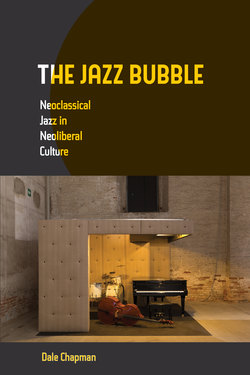Описание книги
Hailed by corporate, philanthropic, and governmental organizations as a metaphor for democratic interaction and business dynamics, contemporary jazz culture has a story to tell about the relationship between political economy and social practice in the era of neoliberal capitalism. <I>The Jazz Bubble</I> approaches the emergence of the neoclassical jazz aesthetic since the 1980s as a powerful, if unexpected, point of departure for a wide-ranging investigation of important social trends during this period, extending from the effects of financialization in the music industry to the structural upheaval created by urban redevelopment in major American cities. Dale Chapman draws from political and critical theory, oral history, and the public and trade press, making this a persuasive and compelling work for scholars across music, industry, and cultural studies.
